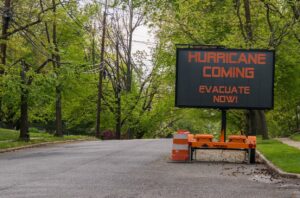Have you ever been “red tagged”? In Content Writer Susie’s town, that means your garbage can is either:
- Bigger than 32 gallons (volume).
- Weighs more than 60 pounds.
- Includes items that are not permitted for garbage and/or recycling pickup.
(It can also mean the sanitation department head has held a grudge since 10th grade.)
Depending upon where you live, you may have your trash bins provided by the town, or you may have to buy a set at your local home improvement store. In any case, there will be restrictions you need to adhere to in order to experience the joys of curbside garbage pickup.
In honor of National Clean Up Day, we put together important recycling and garbage collection information you should know before you kick your stuff to the curb.
Know the rules of your residential garbage pickup service

Every town or county’s department of waste management (DPW) will have a different set of rules. You should receive a flyer explaining your town’s waste management program annually.
(It usually arrives around the first of the year.) If you just moved into your town or you misplaced your flyer, then you should be able to find a copy on your town’s or county’s website.
(We recommend you hang your flyer on your refrigerator for easy reference.)
The flyer should also tell you the town’s waste management schedule. Most towns offer garbage services twice a week (Collection Day!) and recycling services once a week. (If you can help it, don’t be on the Monday/Thursday pickup schedule. You’ll have lots of holidays where you don’t get residential garbage pickup.)
Double-check your recycling days. Some towns alternate weeks for commingled recycling (cans, bottles, etc.) and paper (boxes, newspapers, etc.) Other towns pick up both every week, so make sure you know (and follow) the law. You don’t want to come home and find soggy boxes still on your curb on collection day.
Rural Homeowner Tip: Some rural areas may not get curbside garbage pickup by their town or municipality, so you may need to hire a residential waste management company to do so.
Alternatively, you may be able to take your trash to the county dump and dispose of it there for a nominal fee. It’s usually super easy – just watch the potholes.
What can be thrown to the curb for residential garbage pickup
Most towns will collect a majority of your garbage items save hazardous materials such as certain paints, automotive fluids, and lithium batteries. Construction materials, like sheetrock, windows, shingles, etc., are also usually banned from curbside pickup. For those items, you should call your town’s DPW for instructions and additional information.
Depending upon your state, you may be able to throw out alkaline batteries in your trash, so check before doing so.
Appliances, too, are usually OK for residential garbage pickup, but you may need to make special arrangements with the DPW. Appliances may also have to be dismantled – such as a refrigerator may need to have its door taken off and placed front down, so no people or animals can climb inside.
Many times, yard waste, such as grass, tree clippings, and leaves, may also be picked up, but they must be placed in paper bags. Always check with your town’s restrictions as noncompliance can lead to fines and summonses. (Not cool!)
To recycle or not to recycle – that is the question!

To recycle
The following household products generally can be recycled:
- Mixed paper, office paper, envelopes.
- Corrugated cardboard.
- Glass food and beverage jars.
- Aluminum and metal beverage containers.
- Pet food cans.
- Milk jugs and plastic beverage cartons.
- Plastic with #1, #2, and #5 only (no lids).
- Telephone books and soft cover books.
- Empty helium tanks. (Everyone has one of these hanging around their home, right?)
Many times, these items must be prepared in some way. For example, most plastic food containers must be cleaned and rinsed before being placed in the can. Most services require corrugated cardboard (your Amazon and Wal-Mart boxes) to be flattened or cut into bundles, so check before dragging your recycling to the curb.
Some towns also don’t allow shredded paper but may offer days where they’ll collect paper for confidential shredding.
Not to recycle

You may be surprised to find that some common household items cannot be recycled. These include:
- Plastic bags.
- Pizza boxes (due to the oil on the box).
- Light bulbs.
- Aluminum foil and baking pans.
- Drinking glasses, dishes, and broken window glass.
- Ceramics and pottery.
- Aerosol cans and clothes hangers.
- Motor oil and antifreeze containers.
- Tissue paper, napkins, paper plates, and paper towels.
- Styrofoam.
- Plastics with #3 and #7 symbols.
When in doubt, throw it out (unless it’s hazardous).
What to do if you can’t dispose of your stuff curbside (bummer)
How do you dispose of household hazardous waste? It’s time to check your town flyer/website (again). Some towns allow you to drop certain items, like car batteries, tree stumps, and other miscellaneous stuff, at the DPW yard or collection facility.
Also, counties usually hold certain days or events where they’ll collect hazardous materials, oil, and other liquids, so check your town’s website for proper disposal instructions and notices!
What do you do if you miss trash day?

There are a few options if you miss trash pickup:
- Put your trash out to the curb on your next trash day.
- Take your trash to your local DPW or county dump.
- Call or email the local DPW and ask them to pick up your trash if they’re able.
(It is illegal in some areas to place trash in a neighbor’s can without permission, so it’s always good to ask.)
Of course, some of these options may not be feasible for you. If your town is like Content Writer Susie’s, you may have limits to the amount of trash you can put out per day for residential garbage pickup, so make sure you don’t go over that amount. If the DPW refuses to pick up your trash again, then consider talking to a neighbor and seeing if they have any room in their trash cans. After all, one person’s garbage can be another person’s garbage, too.
Stay on top of home maintenance
Homeownership can be hard, but it doesn’t have to be. The vipHome.app home management app can help. In less than four minutes, you can be introduced to a new way to home. Simply download the app, register your home, and enjoy a simplified homeownership experience. Download today!





